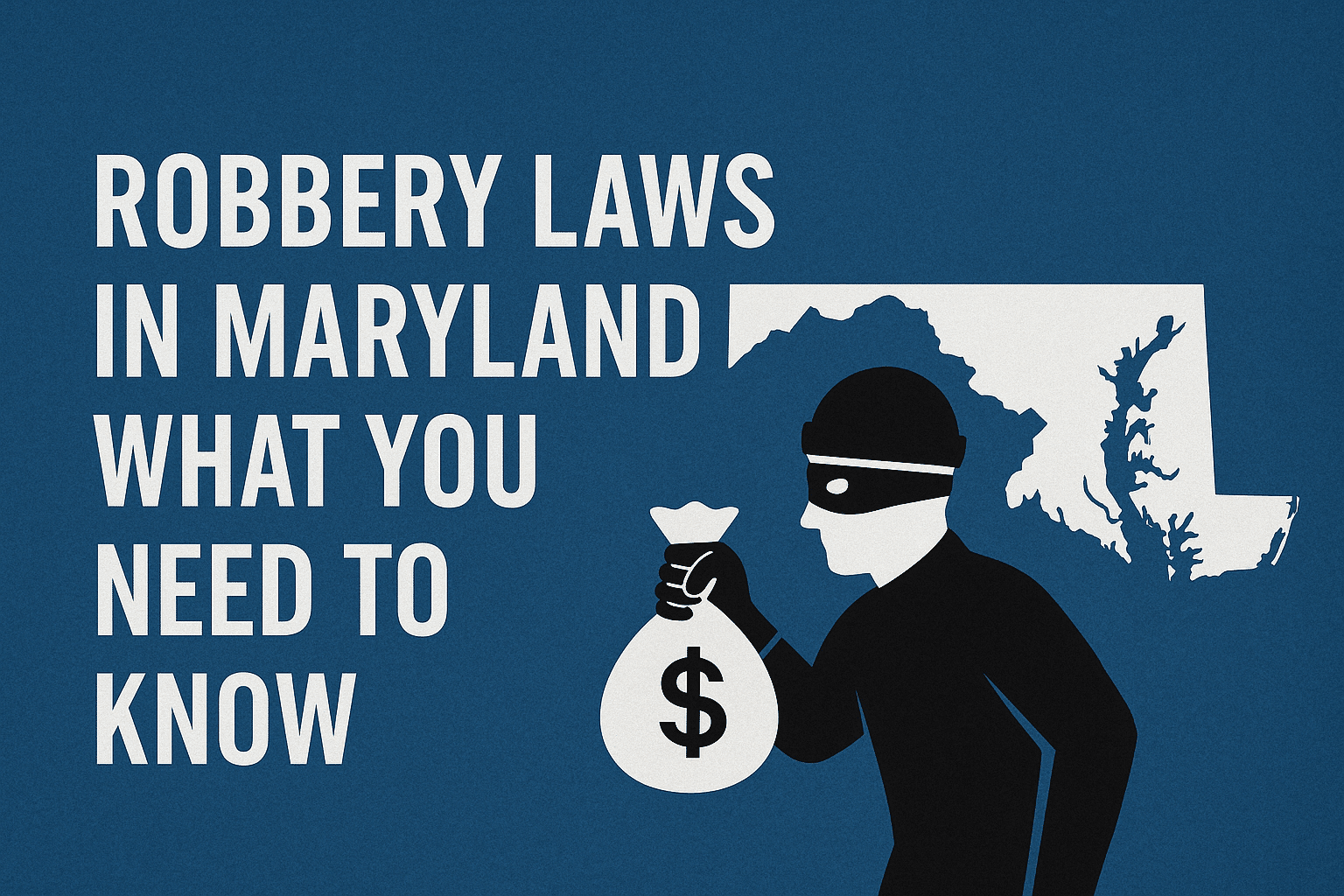
Robbery is a serious felony under Maryland law, and a conviction can lead to lengthy prison time, a permanent criminal record, and loss of civil rights. If you’re facing robbery charges or want to understand the law better, here’s what you need to know about how robbery is defined, the penalties involved, and possible defenses.
What Is Robbery Under Maryland Law?
In Maryland, robbery is more than just theft. It’s a violent crime that involves using force, violence, or the threat of harm to take property from someone. Maryland courts have long treated robbery as a combination of assault and theft, and it must involve:
- Taking property from a person or their immediate presence
- Intent to permanently deprive them of that property
- Use of force or threat of force
The statute governing robbery is found in Criminal Law § 3-402, which outlines both traditional robbery and robbery by threat.
Types of Robbery Charges
1. Robbery (Standard)
This includes any forcible taking of property, even without a weapon. It’s a felony punishable by up to 15 years in prison.
2. Armed Robbery
Under § 3-403, if the person committing the robbery uses a dangerous weapon or claims to have one, the charge escalates to armed robbery, which carries a maximum sentence of 20 years.
3. Carjacking and Armed Carjacking
Although not technically called “robbery,” carjacking (§ 3-405) is treated similarly. Carjacking involves taking a motor vehicle by force, while armed carjacking involves a weapon. These are both felonies with up to 30 years in prison.
4. Attempted Robbery
Even if the robbery was not completed, an attempt still counts as a felony and can lead to serious time in prison.
Penalties and Sentencing Considerations
Maryland law treats robbery harshly. Factors that may impact the sentence include:
- Use of a weapon
- Injury to the victim
- Prior criminal record
- Whether it was a group offense or gang-related
Judges also consider Maryland Sentencing Guidelines, which suggest a range of punishment based on offense seriousness and criminal history.
Defenses to Robbery Charges
A skilled Southern Maryland criminal defense lawyer can explore several defenses, including:
- Mistaken identity
- Lack of force or threat
- Consent or misunderstanding
- Alibi or insufficient evidence
If the accused did not use force, the charge might be reduced to theft, which carries significantly lower penalties.
Robbery vs. Theft in Maryland
The key difference is the use of force or threat. Theft involves taking property without confrontation. Robbery requires physical or threatened violence. For example, snatching a purse from someone’s hands is robbery. Stealing it from an unattended chair may be classified as theft.
Impact of a Robbery Conviction
A robbery conviction is a crime of violence, which has serious consequences in Maryland:
- No parole eligibility until half the sentence is served (or 5 years, whichever is greater)
- Permanent criminal record
- Barriers to employment, housing, and firearm possession
- Harsher sentencing in future cases
It’s also one of the charges that can lead to deportation for non-citizens.
Why You Need a Criminal Defense Attorney
If you or someone you care about is charged with robbery in Maryland, it’s critical to get help immediately. The prosecution will aggressively pursue a conviction—and your freedom, reputation, and future are at stake.
A strong defense can mean the difference between years behind bars and a reduced or dismissed charge. At Southern Maryland Criminal Defense, we have deep experience handling robbery cases in Prince George’s County, Charles County, St. Mary’s County, and Calvert County.
Charged With Robbery in Maryland? Call for a Free Consultation.
Don’t face robbery charges alone. Speak with an experienced defense attorney today. Schedule your consultation now.
